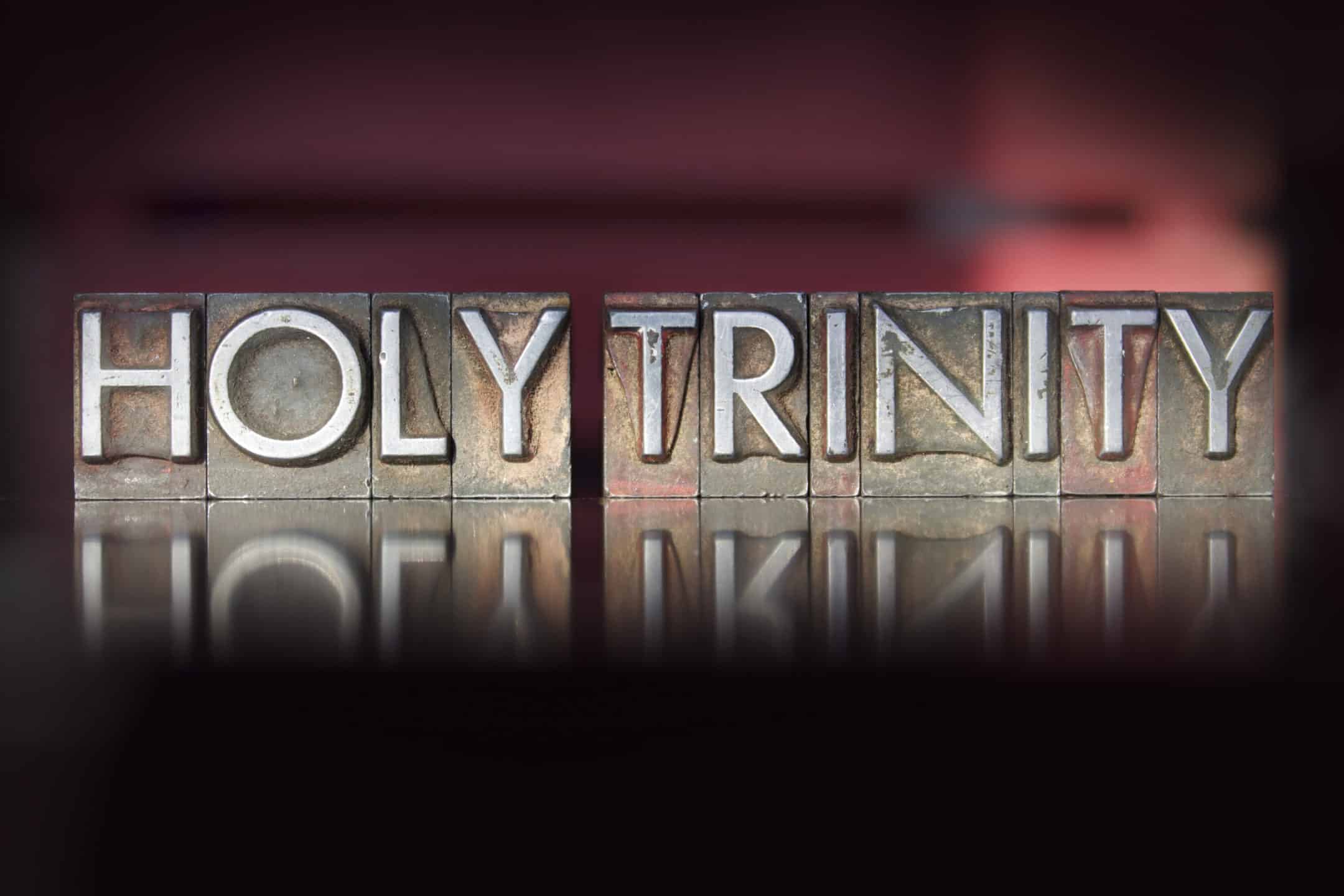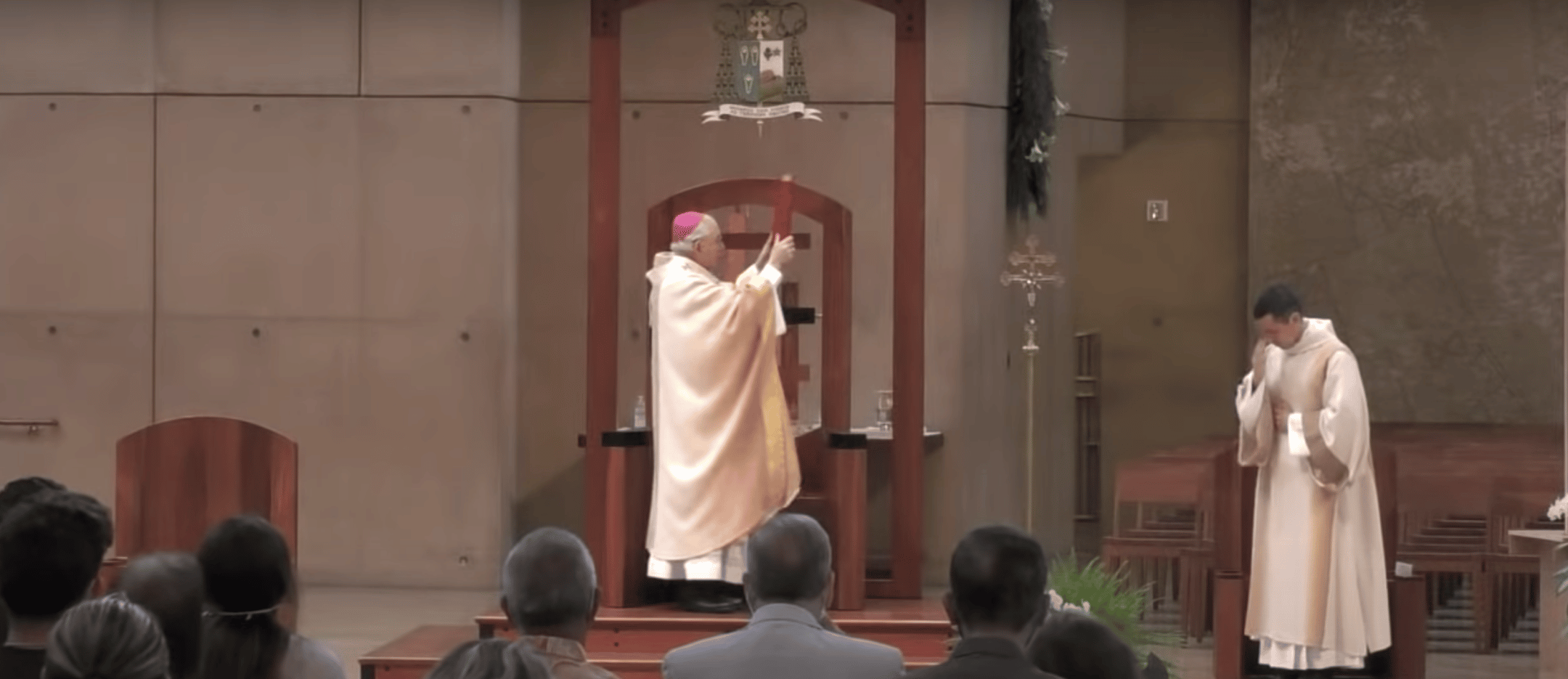“God is love! This is the meaning of the Trinity. And God’s love is personal. The Father creates us, the Son comes to redeem us, and the Spirit is sent to sanctify us.”
-Archbishop José H. Gomez

Most Reverend José H. Gomez
Archbishop of Los Angeles
Cathedral of Our Lady of the Angels
June 7, 2020
My dear brothers and sisters in Christ,
Today marks a beautiful new beginning for the family of God here in the Archdiocese of Los Angeles, as many of our churches are opening to celebrate the Eucharist for the first time in many weeks.
We thank God today for his blessings, for granting us relief from this pandemic of the coronavirus. We also give thanks to Mary our Blessed Mother for her intercession.
In his Providence, God has allowed us to return to Mass on the Sunday when we are invited to contemplate the central mystery of our faith — the mystery of God and the mystery of the Church, and the mystery of our humanity.
We know, of course, what this mystery means — that our God is a beautiful communion of three divine persons in love.
God is the Father who creates us. He is the Son who came into our world to share his life with us. And he is the Spirit who gives us new life as children of God and causes the Trinity to dwell in our hearts.
When we contemplate the Trinity, we understand those beautiful words that we heard in the Gospel today:
God so loved the world that he gave his only Son,
so that everyone who believes in him might not perish
but might have eternal life.
God is love! This is the meaning of the Trinity. And God’s love is personal. The Father creates us, the Son comes to redeem us, and the Spirit is sent to sanctify us.
This beautiful teaching about the Holy Trinity is important for us in these days when we are seeing demonstrations about racism in Los Angeles and cities across the country.
When we contemplate the Trinity, we see the truth that God loves every person, that every person is made in his image and likeness, that we are all sons and daughters in Christ, called to belong to God’s family.
This is why racism is wrong, because it denies this beautiful truth about God’s love for us. In God’s plan there is only one race, the human race. And no human being should ever be rejected or excluded.
And my brothers and sisters, we need to remember that God’s love is the most powerful force in the universe. It is stronger than any hatred, any evil.
Let us ask for that grace today, for all of us to come to a new awareness of just how much we are loved by God.
St. Paul gives us a beautiful prayer in today’s second reading. He says:
The grace of the Lord Jesus
and the love of God
and the fellowship of the Holy Spirit be with all of you.
This is more than a prayer, this describes the reality of our lives, when we are baptized. God sends the Spirit of his Son into our hearts so that we know him and pray to him as our Father.
My brothers and sisters, we are alive now in the love of the Trinity and the Trinity is alive in each one of us, the Father, Son, and Holy Spirit dwelling in our hearts.
In our Christian life, we need to become more aware of the beautiful presence of the Holy Trinity within us, and trying to grow in our love for God the Father, the Son and the Holy Spirit.
And there are little, practical ways we can do that.
We can think about the Sign of the Cross, and how the Father loves us as his own children, and how the Son comes to be our brother and to walk with us, and how the Holy Spirit gives us his gifts so we can live as children of God and brothers and sisters.
Another way we can grow in our relationship with the Trinity is to reflect on the name of God, which we hear in today’s first reading.
As we heard, God revealed his divine name to Moses: “The Lord, the Lord, a merciful and gracious God, slow to anger and rich in kindness and fidelity.”
Mercy is the name of God and we are made in God’s image. So we need to practice mercy in our own lives. We need to be merciful and loving as God is merciful and loving.
That is what St. Paul talks about in today’s second reading when he says: “Mend your ways, encourage one another, agree with one another, live in peace, and the God of love and peace will be with you.”
I think we can all reflect on this duty that we have in this moment, to be peacemakers when our society is divided about these questions of race and equality.
We can help our neighbors to see that by God’s mercy and with his grace, we can be better than we are, better than we have been. We can overcome the weakness in our hearts and keep building the future together.
We need to bring people together, to help them to see our common humanity, to help them to see how beautiful God’s vision is for us to live as one family. We can do this by showing mercy and patience, and forgiveness of others.
Also, we remember that many of our neighbors are hurting because of the impact of coronavirus. So, we need to be near to people in their suffering and try to help them. We need to stand together and help our neighbors get back on their feet.
So, this week, as we slowly begin to resume our ordinary life again, let us try to find practical ways to live as children of God, children of the Most Holy Trinity.
When we love, we are being like God. When we show mercy to others, God is with us.
And let us turn always to our Blessed Mother Mary and ask her to help us to experience more and more the Blessed Trinity’s loving presence within our souls and in our world.
